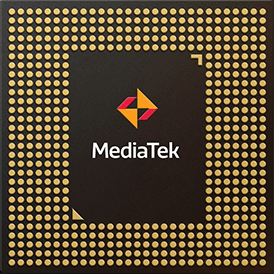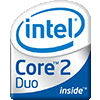
MediaTek MT8183 Benchmark, Test and specs
Last updated:
The MediaTek MT8183 has 8 CPU cores and can process 8 threads at the same time. The processor was presented in Q3/2019 and is based on the 2. Generation of the Mediatek MT-Serie series. In the Geekbench 5 benchmark, the MediaTek MT8183 achieved a result of 294 points (single-core) or 1,145 points (multi-core).

| Name: | MediaTek MT8183 |
|---|---|
| Family: | Mediatek MT-Serie (72) |
| CPU group: | MediaTek MT818x 12nm (1) |
| Architecture: | Cortex-A73/-A53 |
| Segment: | Mobile |
| Generation: | 2 |
| Predecessor: | -- |
| Successor: | -- |
CPU Cores and Base Frequency
The MediaTek MT8183 has 8 cores. The clock frequency of the MediaTek MT8183 is 2.00 GHz. An initial performance assessment can be made using the number of CPU cores.
| CPU Cores / Threads: | 8 / 8 |
|---|---|
| Core architecture: | hybrid (big.LITTLE) |
| A-Core: | 4x Cortex-A73 |
| B-Core: | 4x Cortex-A53 |
| Hyperthreading / SMT: | No |
|---|---|
| Overclocking: | No |
| A-Core Frequency: | 2.00 GHz |
| B-Core Frequency: | 2.00 GHz |
Artificial Intelligence and Machine Learning
Processors with the support of artificial intelligence (AI) and machine learning (ML) can process many calculations, especially audio, image and video processing, much faster than classic processors. Algorithms for ML improve their performance the more data they have collected via software. ML tasks can be processed up to 10,000 times faster than with a classic processor.
| AI hardware: | Mediatek APU |
|---|---|
| AI specifications: | Dual core APU @ 0.5 TOPS |
Internal Graphics
The MediaTek MT8183 has an integrated graphics that the system can use to efficiently play back videos. The MediaTek MT8183 has the ARM Mali-G72 MP3 installed, which has 3 streaming multiprocessors (48 shaders).
| GPU name: | ARM Mali-G72 MP3 |
|---|---|
| GPU frequency: | 0.80 GHz |
| GPU (Turbo): | No turbo |
| Compute units: | 3 |
| Shader: | 48 |
| Hardware Raytracing: | No |
| Release date: | Q3/2017 |
| Max. displays: | 1 |
|---|---|
| Generation: | Bifrost 2 |
| Direct X: | 12 |
| Technology: | 16 nm |
| Max. GPU Memory: | 2 GB |
| Frame Generation: | No |
Hardware codec support
Processors with integrated graphics can process video codecs faster. Support for modern codecs can significantly increase system efficiency during video playback.
| h265 / HEVC (8 bit): | Decode / Encode |
|---|---|
| h265 / HEVC (10 bit): | Decode / Encode |
| h264: | Decode / Encode |
| VP8: | Decode / Encode |
| VP9: | Decode / Encode |
| AV1: | No |
|---|---|
| AVC: | Decode / Encode |
| VC-1: | Decode / Encode |
| JPEG: | Decode / Encode |
Memory & PCIeThe MediaTek MT8183 supports a maximum of 4 GB memory. Depending on the mainboard, the processor can use a maximum of 2 (Dual Channel) memory channels. This results in a maximum bandwidth of the main memory of 19.1 GB/s. |
|
| Memory type: | Memory bandwidth: |
|---|---|
| LPDDR4-2400 LPDDR3-1600 | 19.1 GB/s 19.1 GB/s |
| Max. Memory: | 4 GB |
| Memory channels: | 2 (Dual Channel) |
| ECC: | No |
| PCIe: | |
| PCIe Bandwidth: | -- |
Thermal ManagementThe MediaTek MT8183 has a TDP of 5 W. Based on the TDP, the system manufacturer can and must adapt the cooling solution to the processor. |
|
|---|---|
| TDP (PL1 / PBP): | 5 W |
| TDP (PL2): | -- |
| TDP up: | -- |
| TDP down: | -- |
| Tjunction max.: | -- |
Technical details
Modern production reduces the waste heat of a processor and increases its efficiency. The MediaTek MT8183 is made in 12 nm and has 0.00 MB cache.
| Technology: | 12 nm |
|---|---|
| Chip design: | Chiplet |
| Socket: | -- |
| L2-Cache: | -- |
| L3-Cache: | -- |
| AES-NI: | No |
| Operating systems: | Android |
| Virtualization: | None |
|---|---|
| Instruction set (ISA): | Armv8-A (64 bit) |
| ISA extensions: | -- |
| Release date: | Q3/2019 |
| Release price: | -- |
| Part Number: | -- |
| Documents: | Technical data sheet |
Rate this processor
Benchmark results

The benchmark results for the MediaTek MT8183 have been carefully checked by us. We only publish benchmark results that have been created by us or that have been submitted by a visitor and then checked by a team member. All results are based on and fullfill our benchmark guidelines.
Geekbench 5, 64bit (Single-Core)
Geekbench 5 is a cross plattform benchmark that heavily uses the systems memory. A fast memory will push the result a lot. The single-core test only uses one CPU core, the amount of cores or hyperthreading ability doesn't count.

|
Intel Core2 Duo E6400
2C 2T @ 2.13 GHz |
||

|
Intel Core i3-2365M
2C 4T @ 1.40 GHz |
||

|
Intel Core i3-2367M
2C 4T @ 1.40 GHz |
||
|
|
MediaTek MT8183
8C 8T @ 2.00 GHz |
||

|
Intel Pentium T4200
2C 2T @ 2.00 GHz |
||

|
Intel Core2 Duo E4400
2C 2T @ 2.00 GHz |
||

|
AMD A8-3510MX
4C 4T @ 2.50 GHz |
||
Geekbench 5, 64bit (Multi-Core)
Geekbench 5 is a cross plattform benchmark that heavily uses the systems memory. A fast memory will push the result a lot. The multi-core test involves all CPU cores and taks a big advantage of hyperthreading.

|
Intel Core M-5Y10a
2C 4T @ 1.60 GHz |
||

|
Intel Celeron G1830
2C 2T @ 2.80 GHz |
||

|
Intel Core i7-2677M
2C 4T @ 1.80 GHz |
||
|
|
MediaTek MT8183
8C 8T @ 2.00 GHz |
||

|
Intel Core i3-540
2C 4T @ 3.06 GHz |
||

|
Intel Core i3-3220T
2C 4T @ 2.80 GHz |
||

|
AMD A8-5500B
4C 4T @ 3.70 GHz |
||
Geekbench 6 (Single-Core)
Geekbench 6 is a benchmark for modern computers, notebooks and smartphones. What is new is an optimized utilization of newer CPU architectures, e.g. based on the big.LITTLE concept and combining CPU cores of different sizes. The single-core benchmark only evaluates the performance of the fastest CPU core, the number of CPU cores in a processor is irrelevant here.

|
Intel Celeron 1037U
2C 2T @ 1.80 GHz |
||
|
|
HiSilicon Kirin 710A
8C 8T @ 2.00 GHz |
||

|
Intel Pentium 2117U
2C 2T @ 1.80 GHz |
||
|
|
MediaTek MT8183
8C 8T @ 2.00 GHz |
||

|
Intel Core i3-3217U
2C 4T @ 1.80 GHz |
||

|
Intel Pentium 3558U
2C 2T @ 1.70 GHz |
||

|
MediaTek Kompanio 500
8C 8T @ 2.00 GHz |
||
Geekbench 6 (Multi-Core)
Geekbench 6 is a benchmark for modern computers, notebooks and smartphones. What is new is an optimized utilization of newer CPU architectures, e.g. based on the big.LITTLE concept and combining CPU cores of different sizes. The multi-core benchmark evaluates the performance of all of the processor's CPU cores. Virtual thread improvements such as AMD SMT or Intel's Hyper-Threading have a positive impact on the benchmark result.

|
Intel Pentium Silver J5005
4C 4T @ 2.70 GHz |
||

|
Intel Pentium G3250
2C 2T @ 3.20 GHz |
||

|
Intel Core i5-3320M
2C 4T @ 2.60 GHz |
||
|
|
MediaTek MT8183
8C 8T @ 2.00 GHz |
||

|
Intel Core i5-2390T
2C 4T @ 2.70 GHz |
||

|
Qualcomm Snapdragon 665
8C 8T @ 2.00 GHz |
||

|
Qualcomm Snapdragon 662
8C 8T @ 2.00 GHz |
||
iGPU - FP32 Performance (Single-precision GFLOPS)
The theoretical computing performance of the internal graphics unit of the processor with simple accuracy (32 bit) in GFLOPS. GFLOPS indicates how many billion floating point operations the iGPU can perform per second.

|
AMD E1-6010
AMD Radeon R2 (Beema) @ 0.35 GHz |
||

|
MediaTek Helio X10
PowerVR G6200 @ 0.70 GHz |
||

|
MediaTek MT8173
PowerVR GX6250 @ 0.70 GHz |
||
|
|
MediaTek MT8183
ARM Mali-G72 MP3 @ 0.80 GHz |
||

|
MediaTek Kompanio 500
ARM Mali-G72 MP3 @ 0.80 GHz |
||

|
MediaTek Helio P60
ARM Mali-G72 MP3 @ 0.80 GHz |
||
|
|
HiSilicon Kirin 935
ARM Mali-T628 MP4 @ 0.68 GHz |
||
Performance for Artificial Intelligence (AI) and Machine Learning (ML)
Processors with the support of artificial intelligence (AI) and machine learning (ML) can process many calculations, especially audio, image and video processing, much faster than classic processors. The performance is given in the number (trillions) of arithmetic operations per second (TOPS).

|
Qualcomm Snapdragon 665
8C 8T @ 2.00 GHz |
||

|
Qualcomm Snapdragon 670
8C 8T @ 2.00 GHz |
||

|
Qualcomm Snapdragon 8cx
8C 8T @ 2.84 GHz |
||

|
Google Tensor
8C 8T @ 2.80 GHz |
||

|
MediaTek Helio G99
8C 8T @ 2.20 GHz |
||

|
Apple A11 Bionic
6C 6T @ 2.39 GHz |
||
|
|
MediaTek MT8183
8C 8T @ 2.00 GHz |
||
Benchmarks

Geekbench 5 (SC)
2,488 entries
2,488 entries

Geekbench 5 (MC)
2,461 entries
2,461 entries

Geekbench 6 (SC)
1,755 entries
1,755 entries

Geekbench 6 (MC)
1,703 entries
1,703 entries

FP32 SP (iGPU)
2,042 entries
2,042 entries

AI / ML Performance
119 entries
119 entries
Popular comparisons
back to index







